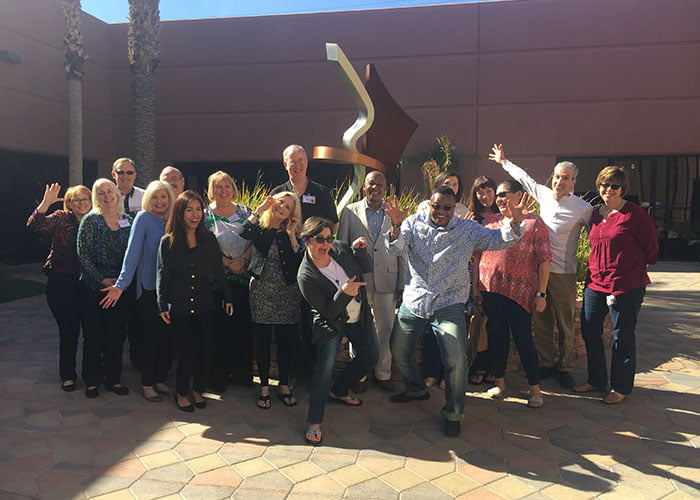People who are new to Appreciative Inquiry often ask, “Appreciative Inquiry focuses on the positive, so do you negate the negative? What do you do about _____?” You can fill in the blank with so many topics: dysfunctional teams, conflict management, lack of trust, poor leadership, etc. Looking back over my journey as a trainer, facilitator, coach and consultant, I remember spending so much time prepping for all of the possible issues that could arise. As time passed, I noticed amazing things happened when I opened myself up to possibilities – by learning to trust myself, the people, but more importantly, the process.
When I do encounter an unpleasant situation, e.g. teams that are meshed in long-term conflict, management names specific people that I should ‘watch out for,’ etc. – it can be easy for all involved, including myself, to return to deficit mindset. Each time we are faced with a new problem, it just seems as though we might get stuck here – so how do we become unstuck? How do we, as change agents, deal with problems in an appreciative way?
While the majority of my work with clients involve preparation (workshops, coaching, and training) – I believe equally as important as preparation is getting in touch with our beliefs, feelings, and way of thinking. Inquiries are not always formal, rather some of the most powerful interventions we have are those we have with ourselves. Take a moment to ask yourself, When are you most alive? What are your strengths? What inspires you about Appreciative Inquiry? What is the best part about the work your do?
The book, Appreciative Leadership, by Diana Whitney, Amanda Bloom and Kae Rader, contains several exercises and tips for handling what seems like messiness. One exercise in the book that I have found quite useful, called “Practicing the Flip,” helps individuals move from habitual problems to promising affirmative topics by becoming more aware of the words they use and its impact in constructing questions that spark positive change.
How do you practice the flip?
TO READ THE WORDS CREATE WORDS OCTOBER 2014 NEWSLETTER ONLINE, PLEASE CLICK HERE>>


Add your comment now using your favorite social account or Click Here To Login
